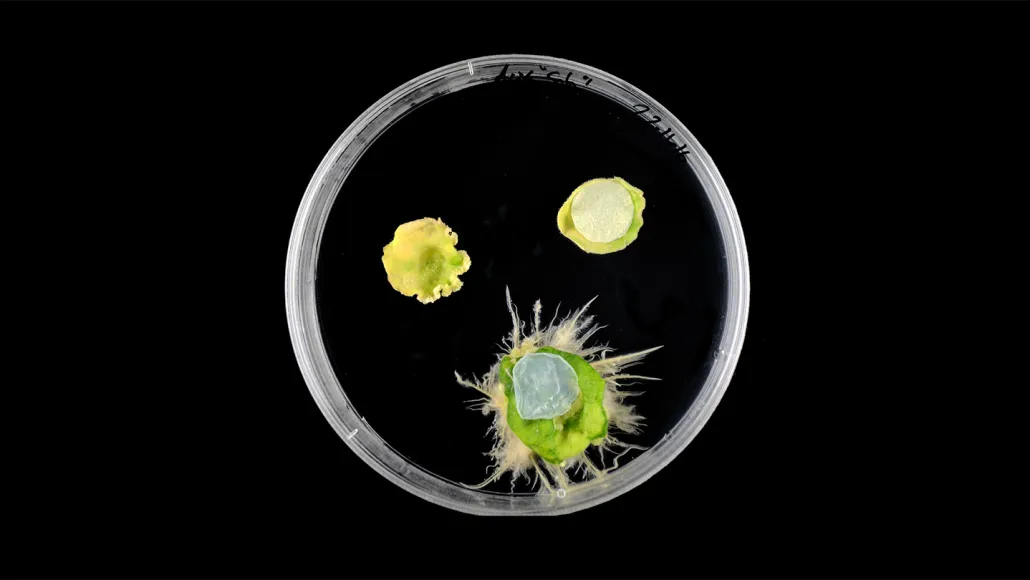A bacteria-based Band-Aid helps plants heal their wounds
A novel bacteria-based Band-Aid for plants is making waves in agricultural science as an innovative way to help plants heal their wounds. Just like humans use bandages to cover cuts and promote healing, plants too can suffer from injuries, often caused by pests, weather conditions, or during human intervention like pruning. These wounds make the plants vulnerable to infections, disease, and a loss of nutrients, which can ultimately affect their growth and survival.
Researchers have developed a bacteria-based Band-Aid designed to protect plant wounds and accelerate their healing process. This Band-Aid is composed of beneficial bacteria that play an essential role in plant health. The primary function of the bacteria is to create a protective barrier around the wound, preventing harmful pathogens and fungi from entering the plant tissues. The bacteria also promote the natural healing mechanisms of the plant by stimulating the plant's immune response and encouraging the growth of new tissue.
The Band-Aid itself is designed as a biodegradable patch that adheres directly to the wounded area. When applied to a plant, the bacteria release natural compounds that boost the plant’s defense system. These compounds have antifungal, antibacterial, and anti-pathogenic properties, further enhancing the plant's ability to recover from injury.
One of the most significant advantages of this technology is its sustainability. Unlike traditional chemical treatments that may harm the environment, this bacteria-based Band-Aid is environmentally friendly and non-toxic. It offers a natural and organic way to heal plant wounds without introducing harmful chemicals into the soil or surrounding ecosystem.
This innovation is particularly valuable for agricultural settings, where crop damage is common due to pests, weather conditions, and farming practices. By using bacteria-based Band-Aids, farmers can reduce the need for chemical pesticides and treatments, which can have negative impacts on both the environment and human health. Overall, this breakthrough could lead to healthier, more resilient crops, and offer a sustainable solution to plant care in both agricultural and horticultural applications.
#PlantHealth #BacteriaBandAid #SustainableFarming #PlantCare #EcoFriendlyAgriculture #BiodegradableBandAid #AgriculturalInnovation #PlantWounds #NaturalHealing #OrganicFarming #GreenTechnology#Professor, #Lecturer, #Scientist, #Scholar, #Researcher, #Analyst, #Engineer, #Technician,#BestTeacherAward, #BestPaperAward, #LifetimeAchievementAward, #YoungScientistAward,
International Young Scientist Awards
Website link: youngscientistawards.com
Nomination Link: https://youngscientistawards.com/award-nomination/?ecategory=Awards&rcategory=Awardee
Contact Us: support@youngscientistawards.com
___________________________________
Social Media:
Twitter : https://twitter.com/youngsc06963908
Linkedin- : https://www.linkedin.com/in/shravya-r...
Pinterest : https://in.pinterest.com/youngscienti...
Blog : https://youngscientistaward.blogspot....
Tumblr : https://www.tumblr.com/blog/shravya9v




Comments
Post a Comment